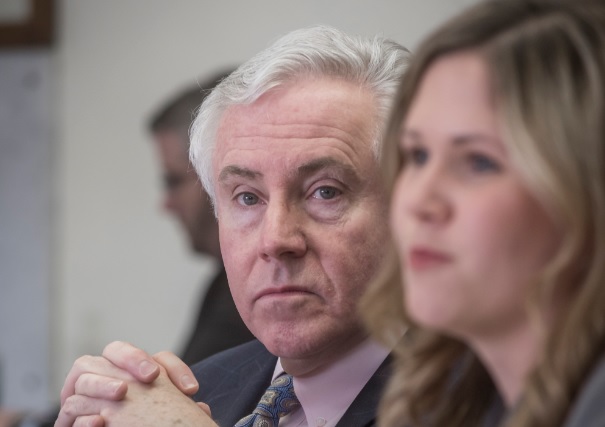
PROVIDENCE – The state’s error-ridden integrated social service eligibility system was front and center in an audit released this week examining how Rhode Island spends federal dollars.
The R.I. Auditor General Office is required annually to audit how the state administers federal programs and funds, known also as the “single audit report,” which accounted for more than 41 percent of overall state expenditures in fiscal 2016.
The audit yielded 73 findings of material weaknesses, significant deficiencies and other compliance matters related to financial statements and how the state runs federal programs.
Dennis E. Hoyle, the state’s auditor general, says the most important findings were those related to the state’s Unified Health Infrastructure Project, or UHIP.
“The findings of the most interest currently are those related to the UHIP implementation,”. Hoyle said.
Last September, the state launched the $364 million system, trying to consolidate state and federal benefit systems, including Medicaid and other entitlement programs. The underlying system, however, was not ready, and the rollout has been unsuccessful. The state is now dealing with public and political fallout.
Indeed, certain underlying systems were so haphazard, state auditors were unable to evaluate some programs related to customer eligibility.
“Lagging eligibility redeterminations, incomplete Medicaid eligibility quality control reviews, data mismatches between the eligibility and claims payment systems and insufficient access to comprehensive case data,” according to the audit, “these factors were all related to the implementation of the UHIP integrated eligibility system.”
The audit also found data discrepancies between the UHIP system and the state’s claims payment system, which increases the risk of duplicative payments. State auditors criticized the R.I. Executive Office of Health and Human Services for poor fiscal oversight, and said more stringent internal controls should be employed.
Oversight, in general, was an issue.
“Governance for the UHIP development project must be enhanced to ensure contractual requirements are met by the lead vendor and others and also to ensure that system defects and other implementation issues are identified, prioritized and corrected on a timely basis,” according to the audit.
The audit examined the fiscal year ended June 30, 2016, meaning it provides a delayed snapshot of where the programs were about nine months ago. The botched rollout has since resulted in a slew of changes within the Gov. Gina M. Raimondo administration, including the resignation of former Health Secretary Elizabeth H. Roberts.
As is customary with audits, participating departments have submitted corrective action plans to remediate cited issues. The audit itself was sent to the federal government last Friday, where officials will determine whether any further action should take place.
The feds could require follow-up meetings to track corrective action, or even disallow future programming or funds, although Hoyle says UHIP-related issues are well known at this point.
“I don’t think UHIP’s new information to them,” he said.
Hoyle’s office is conducting a separate UHIP-specific audit. He is expected to testify on the issue before the R.I. General Assembly this week.
Other findings from the audit include:
- Highway Planning and Construction – The R.I. Department of Transportation should enhance its quality assurance program to ensure that required materials tests are performed and documented consistent with federal regulations and RIDOT policy
- HealthSource RI – The state-based health exchange can enhance its controls and related documentation supporting the allowability of costs reimbursed through the State Planning and Establishment Grants for the Affordable Care Act’s Exchanges program
- Low Income Home Energy Assistance Program – The R.I. Department of Human Services did not comply with the period of performance requirement for the LIHEAP grant – $5.0 million of awards were not expended or obligated by the required date
- Community Development Block Grant – the Office of Housing and Community Resources should improve its monitoring of sub-recipients
- Preparation of the Schedule of Expenditures of Federal Awards – Controls need to be implemented to identify amounts passed through to sub-recipients within the state’s accounting system, which is the basis for preparing the schedule required by the uniform guidance
The full audit can be found HERE.












